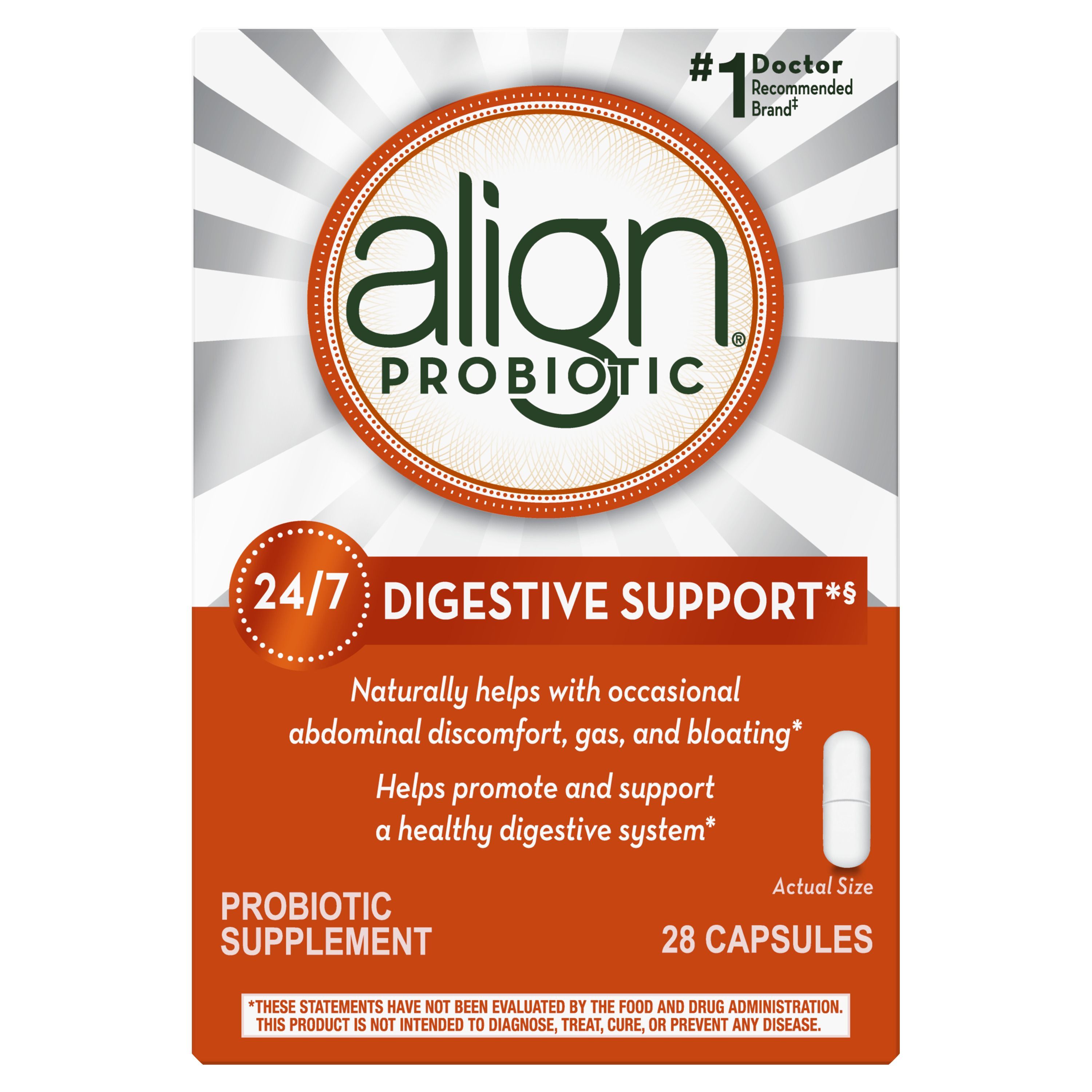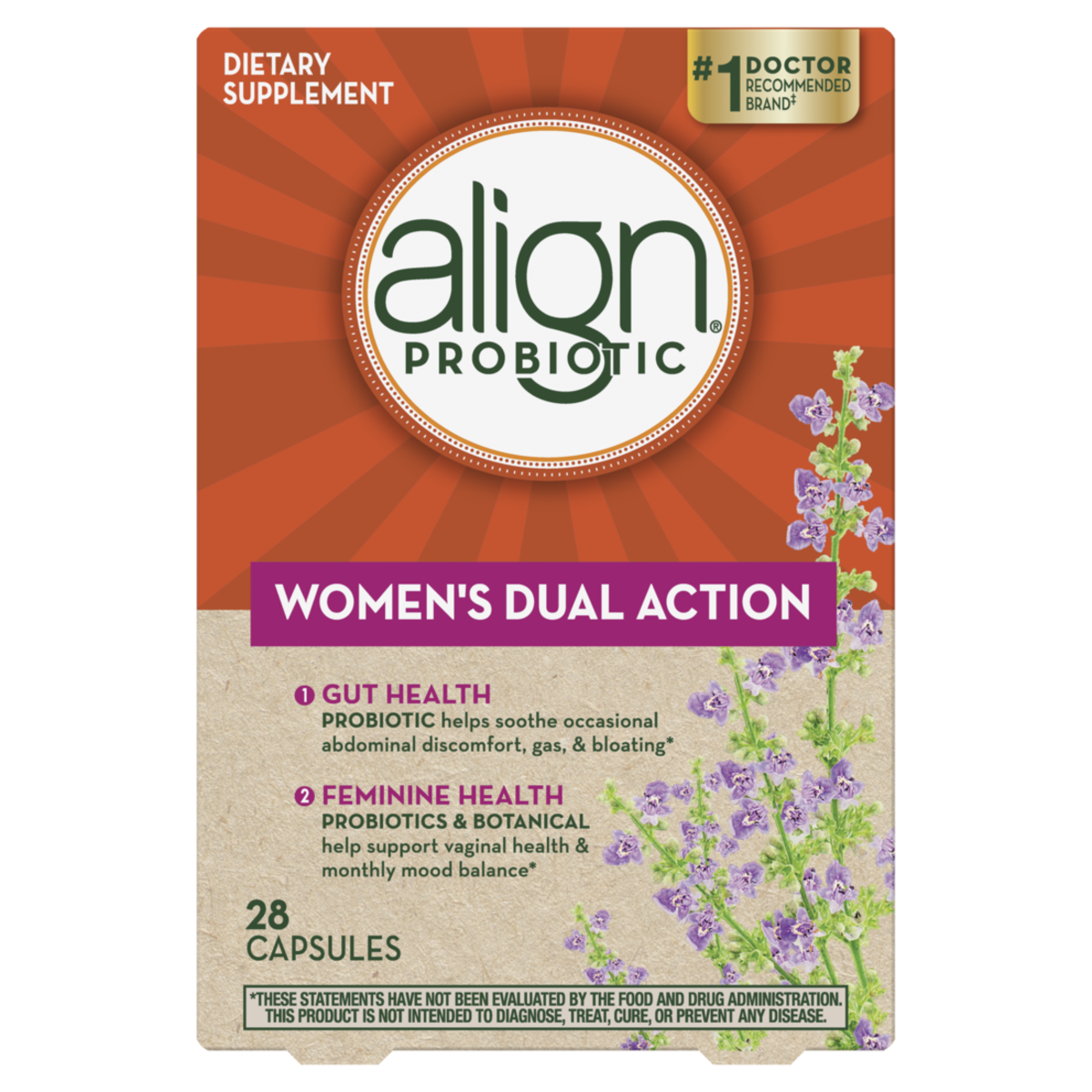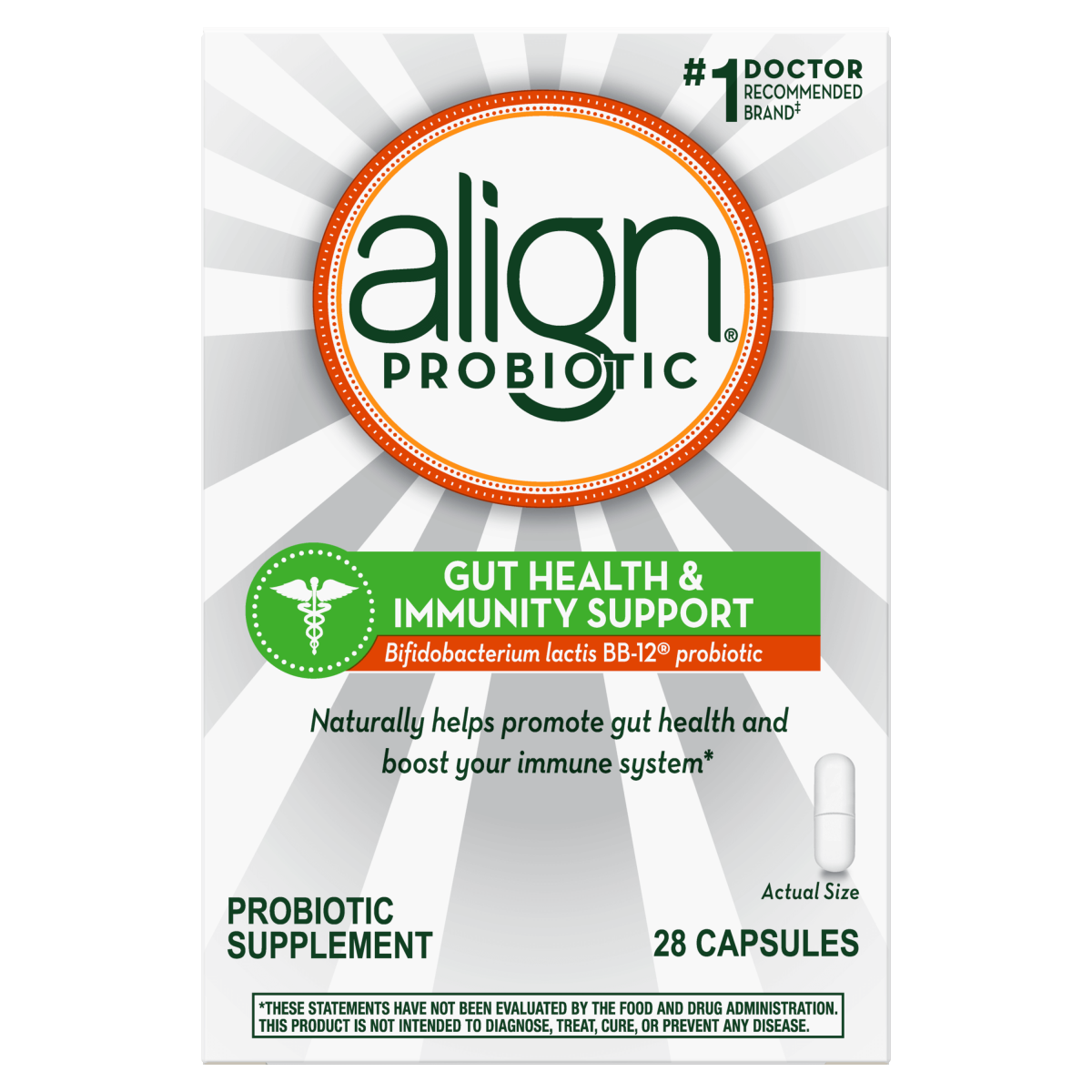The shelves at your local pharmacy are packed with them. You’ve seen them advertised in magazines and on TV. Maybe a friend, or even your doctor, has recommended them to you. Probiotics — one of the fastest-growing nutritional categories in the country — offer myriad benefits by improving gut health, which can boost your overall wellness and also offer relief of annoying digestive symptoms such as gas, bloating, occasional constipation, and diarrhea.
You might be tempted to take your friend’s advice and go shopping for a product, but how much do you really know about probiotics? Take the true/false quiz below to find out. Some of the answers to these seemingly simple topics might surprise you, and they’ll definitely make you a smarter probiotics shopper, potentially leveling up your health and wellness in the process.
This content is imported from poll. You may be able to find the same content in another format, or you may be able to find more information, at their web site.
Answer: False. “It’s important to note that in the same way not all bacteria make us sick, not all bacteria are truly probiotic — or have research to confirm they improve human health,” says registered dietician Desiree Nielsen, R.D., author of Eat More Plants. “It’s not correct to say that kombucha, for example, is a probiotic. Kombucha is a fermented food that may or may not contain some probiotic.” This isn’t to say that these foods are bad for you; in fact, they can be very nutritious. But some fermented foods may not provide a source of probiotics.
According to the National Institutes of Health (NIH), probiotics are “live microorganisms (such as bacteria and yeasts) that provide health benefits when you consume them.” The NIH also points out that not all products marketed as probiotics have proven health benefits.
When shopping for a probiotic, consumers should look for an item containing a strain or strains of probiotics that have shown proven results for things like digestive health, immune health, or even feminine health. Strains such as Bifidobacterium longum 35624™ are backed by years of research, and products containing them, like Align Probiotic Supplement 24/7 Digestive Support*§, are formulated to provide specific benefits.
This content is imported from poll. You may be able to find the same content in another format, or you may be able to find more information, at their web site.
Answer: True. Some products contain multiple strains of probiotics intended to confer complementary health benefits, while others have a targeted single strain. Neither approach is better or worse, as long as the strains have been proven effective. For example, Align Women’s Dual Action Probiotic Supplement contains three different probiotic strains — one for digestive symptoms like bloating and gas,* and the other two to support vaginal health* — while Align Gut Health & Immunity Support contains a single strain to help promote gut health and boost the immune system.*
Each probiotic’s name includes its genus, species, subspecies, and alphanumeric strain. “The strain is how we identify specific microorganisms,” explains Sherry Coleman Collins, M.S., L.D., a Georgia-based registered dietitian nutritionist. “[Its name] helps researchers determine which specific microbe is conferring benefit onto a host.” For example, with the single strain Bifibobacterium longum subsp. longum 35624™, which may help digestive symptoms, the genus is Bifibobacterium, the species and subspecies is longum subsp. longum, and the strain is 35624.
This content is imported from poll. You may be able to find the same content in another format, or you may be able to find more information, at their web site.
Answer: False. Short for “colony forming units,” the CFU count on a product is a guarantee of the number of live microorganisms it contains. But when it comes to probiotics, says Nielsen, “the ‘more is more’ philosophy doesn’t quite pan out. A 100 billion CFU product is not automatically better than a 50 billion CFU product. What matters is that the number of CFUs matches the dose that was effective in clinical trials. Some probiotics are highly effective at 1 billion CFU; others are only effective at 50 billion CFU.”
Ideally, you’d look for a product containing the number of CFUs used in clinical studies that showed health benefits for that particular strain. The good news is, you don’t have to read through reams of scientific studies to do that. Just go to usprobioticguide.com, an independent database of research-backed probiotic products available in the United States.|| Click the population category that applies to you (e.g., Adult Health or Women’s Health), then look in the “Applications” column of the chart to find the benefits you are looking for. The columns to the left of that tell you what strains provide those benefits and which brands offer products containing those strains.
This content is imported from poll. You may be able to find the same content in another format, or you may be able to find more information, at their web site.
Answer: False. Like all dietary supplements, probiotics aren’t drugs. They don’t have the same effects on the body that drugs do, so it may take some time before you begin to see any benefits. “I recommend a 12-week trial before you assess benefits,” says Nielsen. During that time, “gas, bloating, or bowel movements should improve,” she says. “If they haven’t, stop taking the probiotic — it isn’t working for you. A probiotic, if it’s working for you, will help you feel better.” When that happens, consider trying a different probiotic.
It’s also important to understand that probiotics don’t move in and take up permanent residence in your gut. They’re just passing through, temporarily providing benefits for as long as you add them in. If you want to continue to see benefits, you have to keep taking the product.
To learn more about probiotics, and find guidance on what products may help your individual symptoms and health issues, join the Align Healthy Gut Team Up. Align is bringing together medical professionals and everyday probiotics users to educate people on the benefits of probiotics and how to use them. Plus, by joining you’ll get $2 off your first month of Align Probiotics.
§Fortifies your digestive system with good bacteria 24/7 with continued daily use*
*This statement has not been evaluated by the Food and Drug Administration. This product is not intended to diagnose, treat, cure, or prevent any disease.
|| Procter & Gamble is a member of the alliance for education on probiotics that provides an unrestricted educational grant to support the creation of the probiotic guide.



